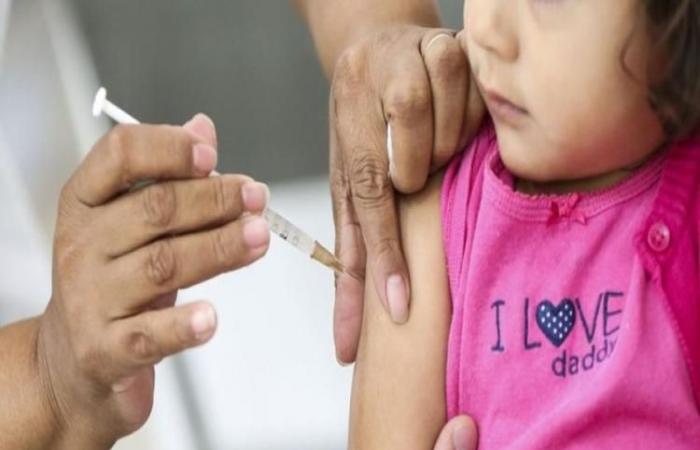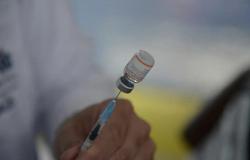
Child vaccine hesitancy in relation to the Covid-19 pandemic is the subject of an article produced by researchers from the Interdisciplinary Center for Public Health Emergencies (Niesp) – one of the ten integrated projects of the Fiocruz Center for Strategic Studies –, published in the edition March of the Public Health Notebooks. The article presents the results of a qualitative perception survey carried out with Primary Health Care (PHC) professionals, considering “the lack of coordination between federative entities during the pandemic, misinformation and the actions of the Federal Government, which discredited childhood immunizations ”, as the authors of the study write, including researchers from the Sérgio Arouca National School of Public Health (ENSP/Fiocruz).
86 PHC workers were interviewed, from four municipalities, Rio de Janeiro (RJ), Rondonópolis (MT), Feira de Santana (BA) and São Paulo (SP), and the Federal District. The political and social scenario, divergent opinions on the importance of childhood vaccination and the large circulation of false information were associated with the word fear in the participants’ responses, point out the authors, for whom this was one of the highlighted aspects.
“The results that drew the most attention were the reports of fear among the population regarding the vaccine, despite Brazil having one of the highest Covid mortality rates in the world”, notes, in an interview with the CEE blog, the ENSP researcher , Ester Paiva Souto, at the head of the research group, who signed the article alongside Michelle Vieira Fernandez, from the Aggeu Magalhães Institute, and Celita Almeida Rosário, Priscila Cardia Petra and Gustavo Correa Matta, all from ENSP/Fiocruz. “This made us think about the affects driven by the vaccination campaign. Fear, in general, was associated with misinformation about possible adverse effects of the vaccine, either non-existent or rare”, she analyzes.
The responses from PHC professionals were organized into three categories: fear, vaccine misinformation and the role of health professionals. The fear, explains the article, was related to the fact that the vaccine was still perceived as experimental, the lack of long-term studies, the false perception of reduced risk of Covid-19 in children and the conduct of the Federal Government “generating insecurity in the effects of the vaccine”.
With regard to misinformation about the vaccine and its reactions, fake news, the infodemic phenomenon and the lack of guidance and knowledge about immunizers were highlighted. The authors approach the infodemic as a phenomenon catalyzed in the pandemic “by the process of politicization of the issue, resulting in the exaggeration or underestimation of the disease” and interfering with trust and acceptance of the Covid-19 vaccine.
The study also found the “perception of divergent discourses between federative entities”, the Union, states and municipalities, regarding the management of the Unified Health System (SUS), which “culminated in greater uncertainty among parents and guardians, observed by the low vaccine adherence in municipalities”. Given this disarticulation, the article also points out, municipal departments were listed by professionals as references and safe sources.
As for PHC health professionals, their role was considered “central” in increasing vaccination coverage, due to their reliability among the population and their proximity to the territories, “factors that make it possible to reverse fear and misinformation regarding vaccines”. According to the authors, “knowing the experiences and understanding the perception of health professionals is very useful for understanding childhood vaccine hesitancy, especially in terms of confidence”.
As Ester points out, the study highlighted the importance of health professionals as references for the population. “The close relationship between these professionals and the population was decisive for vaccination and therefore they should be valued”, points out the researcher. “Professionals considered that providing information about the effectiveness and safety of the Covid-19 vaccine to parents/guardians had a positive influence on the acceptance of childhood vaccination”, especially, “when they are willing to resolve doubts about the possible adverse reactions of vaccines, recurring reason for insecurity according to those interviewed”, says the text. The authors add, however, that, just as professionals, especially doctors, are capable of influencing and generating trust, they can also cause uncertainty when they adopt stances against vaccines, given the position of power they occupy.
About vaccine hesitancy
The term vaccine hesitancy was proposed by the World Health Organization (WHO), referring to the delay in accepting or refusing vaccination, despite the availability of vaccines in health services. According to Ester Paiva Souto, some aspects of vaccine hesitancy have already been studied for many years in Brazil, but the drop in vaccination coverage since 2016, fiscal austerity policies and the political scenario of the pandemic have given this a greater field of study. relevance. “In this way, we situate our research in this scenario of new challenges for vaccination policies, since we realize that traditional campaign strategies, which were successful in the 90s and 2000s, are no longer as efficient”.
To measure hesitancy, explains the article, nuances defined by the WHO’s Strategic Advisory Group of Experts on Immunization (Sage) are observed, with those who accept at one extreme. all vaccines without a doubt, and, in another, those who refuse them unquestionably.
The research cites studies carried out in the country using this scale, one of them, from 2021, demonstrating that 11.9% of parents were vaccine hesitant in Brazil. “The fear of adverse reactions appears as the main cause of insecurity in this group, even among those who declared themselves in favor of traditionally applied vaccines.” Another survey, carried out in 23 countries, with a thousand participants in each, showed that childhood vaccine hesitancy increased by 56.3% in Brazil in 2021.
For the first time in the history of the National Immunization Program (PNI), the researchers emphasize, public communication bodies were responsible for disseminating misinformation and disincentives to a vaccine. “The discursive disputes built around Covid-19 and the statements that minimized the disease, characterizing it as a little flu or as a disease of concern only for risk groups, helped to underestimate the importance of collective immunity through the vaccine”, they analyze, highlighting the need for scientific institutions and public policy makers to “retake the vaccination agenda with the aim of being objective in health communication, and not merely responsive to misinformation”.
Ester emphasizes that, despite the study being carried out during the Covid-19 pandemic, the findings remain relevant and current. “We observed great hesitancy regarding the dengue vaccine in children, even in the face of the epidemic. Vaccine hesitancy in the country must be treated more broadly, not just as a policy restricted to the Health department”, she argues. “It is necessary to consider the role of information technologies in the dissemination of health misinformation, as well as democratizing access to reliable information and strengthening primary care and community health agents, providing better salary and working conditions. These are some of the necessary measures to reduce hesitation, which, if not seriously worked on, do not show us a reversal scenario”, she warns.
No comment for: Study analyzes childhood vaccine hesitancy and Covid-19 from the perspective of health professionals
Tags: Study analyzes childhood vaccine hesitancy Covid19 perspective health professionals
--




